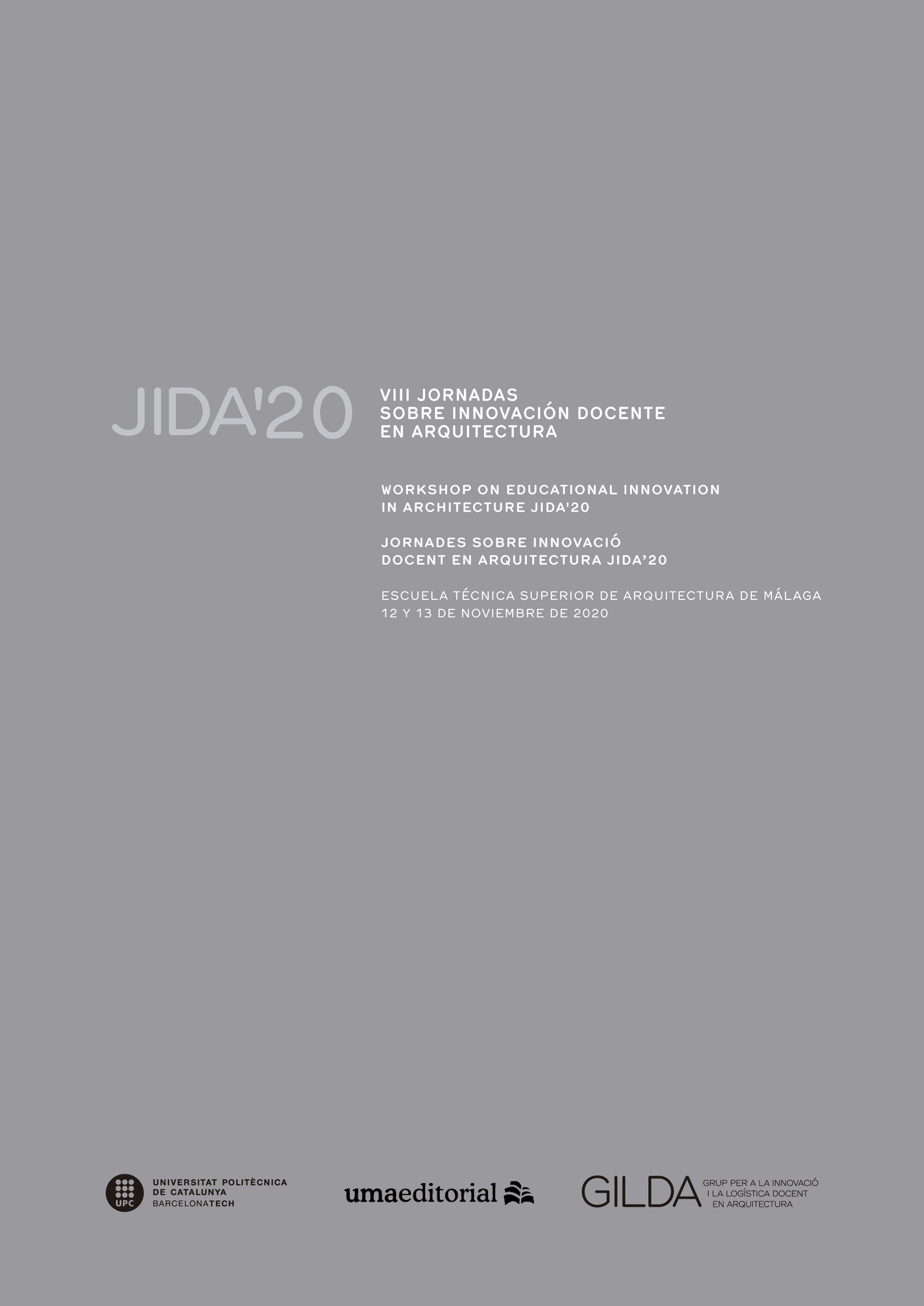Role-Play como Estrategia Docente en el Aprendizaje de la Construcción
DOI:
https://doi.org/10.5821/jida.2020.9455Resumen
La experiencia docente que se presenta se enmarca dentro de la asignatura de Construcción 6, del Grado en Fundamentos de Arquitectura de la Universidad de Sevilla. Hasta el momento, en la parte teórica de la materia se seguía un procedimiento de clase magistral mediante la forma tradicional. Sin embargo, y con el objetivo de romper un poco con la monotonía de clases magistrales imperante, se opta por sustituir una de las sesiones teóricas por un role-play titulado “simulacro de juicio de responsabilidad civil”. Con él se consigue acercar de una manera amena y atractiva al alumnado al conocimiento de una situación real de la profesión así como facilitarle la comprensión de los papeles de los distintos agentes en él intervienen. Los estudiantes han hecho una valoración muy positiva de esta metodología, incluso negando la capacidad de obtener este aprendizaje con el modelo tradicional.
Citas
BAIN, K. (2006). Lo que hacen los mejores profesores de universidad. Universitat de València.
BARROWS, H. (1986). “A taxonomy of problem based learning methods†en Medical Education, 20: 481-486.
FINKEL, D. (2008). Dar clase con la boca cerrada. Universitat de València.
KOLB, D (2015) Experiential Learning. Experience as the Source of Learning and Development. (2ª edición) New Jerse: Ed. Pearson Education, Inc.
ONECHA-PÉREZ, B.; CABALLERO-MARCOS, A.; LÓPEZ-VALDÉS, D.; SANZ-PRAT, J. (2017) “El aprendizaje cooperativo aplicado a las asignaturas técnicas del 1r curso de Arquitectura†en V Jornadas sobre Innovación Docente en Arquitectura, 179-189.
PEDREÑO-ROJAS, M. A. (2018). “El estudio de casos como técnica de mejora docente en la asignatura de Taller de Arquitectura 6†en Jornadas de Formación e Innovación Docente del Profesorado, 1, 517-530.
PORLÃN-ARIZA, R. ET AL. (2017). Enseñanza Universitaria. Cómo mejorarla. Editorial Morata.
RUEÌ, J., (1994), “El trabajo cooperativo, en Dader, P., GairiÌn, J., (eds)†en Guia para la organizacioÌn y funcionamiento de los centros educativos, Ed. Praxis, Barcelona. pp 244-253.






















